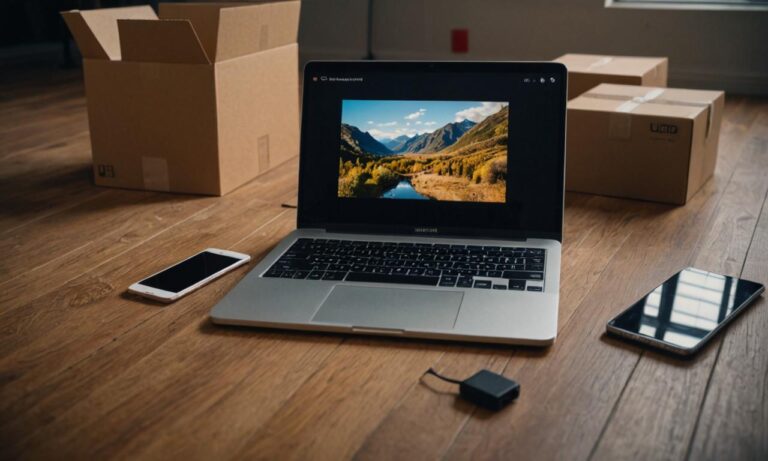Facebook Marketplace has become a popular platform for buying and selling items, but it’s also a breeding ground for scammers. One of the most common scams is the verification code scam, where scammers trick users into revealing their Google verification codes. In this article, we’ll dive deep into how this scam works and what you can do to protect yourself.
As someone who has personally encountered scammers on Facebook Marketplace, I feel compelled to share my experiences and insights with you. It’s crucial that we stay vigilant and informed to avoid falling victim to these cunning schemes.
I once had a close call with a scammer who tried to convince me to share my Google verification code. They claimed it was necessary to complete our transaction, but something didn’t feel right. Trusting my instincts, I refused and reported the user to Facebook. It was a reminder that we must always be cautious when dealing with strangers online.
Common Facebook Marketplace Scams to Watch Out For
Before we delve into the specifics of the verification code scam, let’s take a look at some other common scams on Facebook Marketplace:
- Buyer scams: Scammers pose as interested buyers but never follow through with payment.
- Rental property deposit scams: Fraudulent listings ask for upfront deposits for properties that don’t exist or aren’t available.
- Phishing scams: Scammers send links that appear to be from Facebook but are designed to steal your personal information.
- Overpayment scams: Buyers claim to have overpaid and request a partial refund, but their initial payment is fake.
- Shipping scams: Sellers ask for payment outside of Facebook’s secure system and never ship the item.
- Payment scams: Scammers use fraudulent payment methods or counterfeit checks.
Familiarizing yourself with these common scams is the first step in protecting yourself on Facebook Marketplace.
How the Google Verification Code Scam Works on Facebook Marketplace
The Google verification code scam is particularly insidious because it exploits the trust we place in two-factor authentication. Here’s how it typically unfolds:
- A scammer contacts you on Facebook Marketplace, expressing interest in an item you’re selling.
- They claim that Facebook requires a Google verification code to ensure a secure transaction.
- The scammer requests that you share the SMS message verification code sent to your phone.
- If you provide the code, the scammer gains access to your Google account and can wreak havoc on your digital life.
It’s important to remember that Facebook will never ask for your Google verification code. This is a tactic used solely by scammers.
“Under no circumstances should you ever share your Google verification code with anyone,” warns cybersecurity expert Dr. Alastair Kryptnikov. “Legitimate companies and platforms will never request this information from you.”
Protecting Yourself from Fake Giveaway Scams on Facebook Marketplace
Another common scam on Facebook Marketplace involves fake giveaways. Scammers create posts claiming to offer high-value items for free or at heavily discounted prices. They often use urgency tactics, stating that the offer is only available for a limited time.
To claim the supposed giveaway, users are asked to provide personal information or make a small payment to cover shipping fees. In reality, there is no giveaway, and the scammer disappears with the victim’s money or personal data.
To protect yourself from fake giveaway scams:
- Be wary of deals that seem too good to be true.
- Research the seller’s profile and reviews before engaging.
- Never provide personal information or make payments outside of secure online transactions.
- Report suspicious posts using Facebook’s scam reporting process.
Venmo Scams to Avoid on Facebook Marketplace
Venmo, a popular mobile payment app, has also become a target for scammers on Facebook Marketplace. Here are a few Venmo-related scams to watch out for:
| Scam Type | How It Works |
|---|---|
| Fraudulent payment | Scammer sends a fake Venmo payment email, claiming the funds will be released once you ship the item. |
| Overpayment | Buyer “accidentally” sends too much money via Venmo and requests a partial refund. The original payment is later reversed. |
| Counterfeit check | Scammer pays with a counterfeit check via Venmo, which initially appears to clear but is later identified as fraudulent. |
To avoid falling victim to Facebook Marketplace Venmo scams, always verify payments directly within the Venmo app before shipping any items. Be cautious of buyers who pressure you to use Venmo instead of Facebook’s secure checkout system.
Steps to Take if You Fall Victim to a Facebook Marketplace Scam
If you find yourself a victim of a Facebook Marketplace scam, don’t panic. Here are some steps you can take:
- Document all communications and transactions with the scammer.
- Report the scammer’s profile to Facebook.
- Contact your bank or credit card company if you’ve made any payments.
- File a report with your local law enforcement agency.
- Educate yourself on marketplace fraud prevention techniques to avoid future scams.
Remember, prevention is key. Always use safe payment methods and communicate through Facebook’s official channels. If a deal seems suspicious, trust your gut and walk away.
Reporting Scams and Suspicious Activity on Facebook Marketplace
If you encounter a scammer or suspicious activity on Facebook Marketplace, it’s crucial that you report it to help protect others. Here’s how:
- Go to the scammer’s Facebook profile.
- Click on the three dots at the top of their profile.
- Select “Give feedback or report this profile.”
- Follow the prompts to submit your report.
You can also report individual listings by clicking the three dots in the top right corner of the post and selecting “Report Post.”
By reporting scams and suspicious activity, you contribute to a safer marketplace for everyone. Facebook’s algorithms learn from these reports, making it harder for scammers to operate on the platform.
As digital citizens, we have a responsibility to look out for one another online. If you see something suspicious, say something. Your actions could prevent someone else from falling victim to a scam.
In conclusion, while Facebook Marketplace offers a convenient way to buy and sell items, it’s essential to stay vigilant against scammers. By familiarizing yourself with common scams like the verification code scam and car deposit scams, using secure payment methods, and reporting suspicious activity, you can help create a safer environment for everyone.
Stay safe out there, and happy buying and selling!
See also:
- Beware: DHHS Grant Program Scam Targets Facebook Users
- Beware of Snapchat Cash App Scams: Protect Your Money and Account
- Beware of the 844 Area Code Scam: Protect Yourself from Technical Support Fraud
- Beware the Meta Business Suite Message Scam: Don’t Fall for Fake Warning Messages
- Beware of Instacart Scams: Protecting Customers and Shoppers






